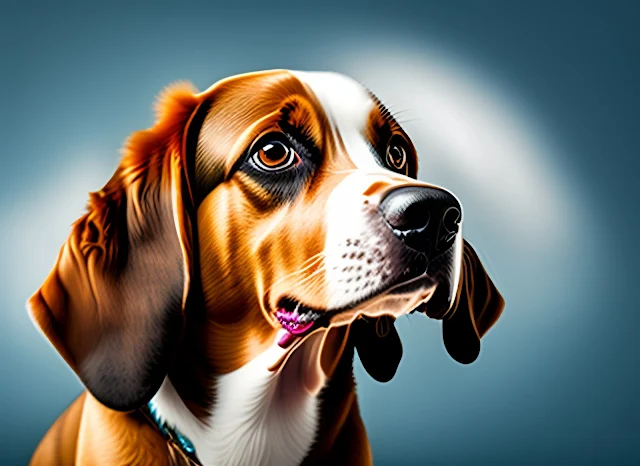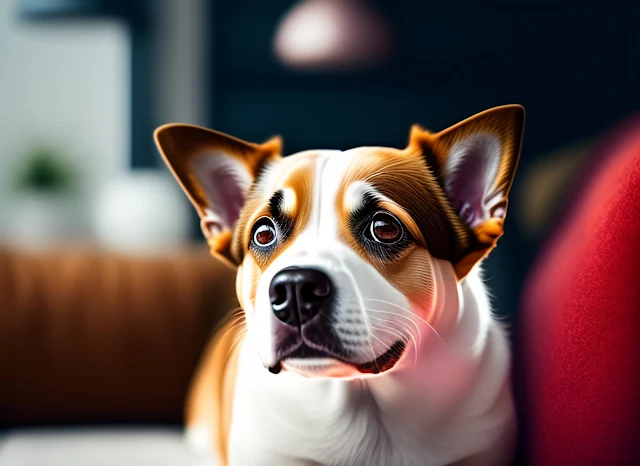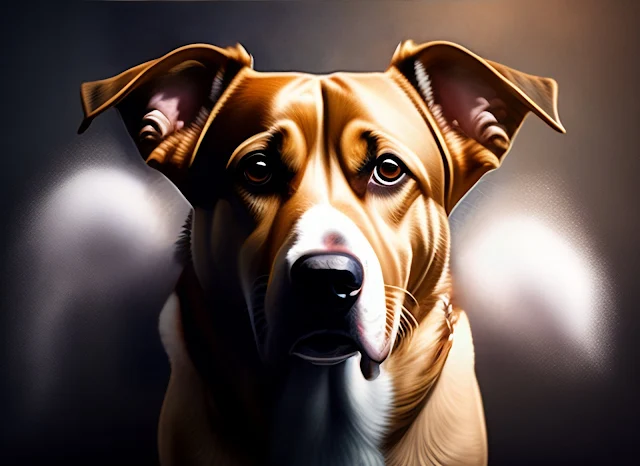How to Get Rid of Dog Dandruff: 10 Effective Methods
Dandruff is a common issue that many dogs face, but it can be uncomfortable and unsightly for both the dog and its owner. It is important to treat dandruff in dogs to keep their skin and fur healthy and to prevent other skin conditions from developing. This article will outline 10 effective methods for getting rid of dandruff in dogs. Dandruff can be a frustrating problem for dog owners, but it's a treatable one. Here are ten methods you can use to get rid of dandruff in your dog's fur.
1. Medication
If your dog has flea allergy dermatitis, which is a common cause of dandruff, the first step to getting rid of dandruff is eliminating the fleas. Your veterinarian will be able to recommend the best course of action for eradicating fleas from your home, which may include administering an anti-parasitic medication like ivermectin [1].
2. Baking Soda
Baking soda has antifungal properties that can help release dandruff in dogs. Mix baking soda with water, sprinkle it on your dog's fur, and then comb it out with a hard brush to remove dead flakes. It's important to wash your dog's fur with shampoo after this treatment to remove any residue [2].
3. Grooming
Regular grooming can help prevent dandruff by removing dead skin cells before they have a chance to build up and cause problems. Brush your dog's fur regularly and make sure to give them regular baths [3].
4. Diet
A diet that's low in essential fatty acids can contribute to dandruff, so it's important to make sure your dog is eating a well-balanced diet that includes plenty of Omega-3 and Omega-6 fatty acids. Talk to your veterinarian about the best diet for your dog's needs.
5. Moisturizing
Keeping your dog's skin moisturized can help reduce dandruff. Use a dog-specific lotion or oil to help keep their skin hydrated.
6. Allergies
If your dog is prone to allergies, it's important to identify and eliminate the allergens that may be contributing to their dandruff. This may involve changing their diet, avoiding certain environmental triggers, or using allergy medications prescribed by their veterinarian.
7. Shampoo
Using a medicated shampoo specifically designed to treat dandruff can be an effective way to get rid of dandruff. Look for shampoos that contain ingredients like salicylic acid, tea tree oil, or sulfur.
8. Vitamin Supplements
Adding vitamin supplements to your dog's diet can help improve its skin health and reduce dandruff. Vitamin E, biotin, and Omega-3 fatty acids are all important for skin health.
9. Avoid Over-bathing
While regular bathing is important for preventing dandruff, over-bathing can actually make the problem worse by drying out your dog's skin. Make sure to only bathe your dog as often as necessary and to use a gentle, moisturizing shampoo.
10. Consult a Veterinarian
If you're struggling to get rid of your dog's dandruff, it's important to consult a veterinarian. They'll be able to help you identify the underlying cause of the problem and recommend the best course of action for treatment.
Treating Dandruff Caused by Food Allergies
In some cases, dog dandruff may be caused by food allergies. If this is the case with your dog, you may notice other symptoms such as itching, redness, and hair loss. To treat food allergies, you will need to eliminate the allergen from your dog's diet. This can be done by feeding your dog a hypoallergenic diet, or by switching to a different brand of food that doesn't contain the allergen.
It is important to work with your veterinarian to determine the cause of your dog's food allergies, as well as the best course of treatment. This may involve an elimination diet, where you remove certain ingredients from your dog's diet and gradually reintroduce them to see which one is causing the reaction.
If you suspect that your dog's dandruff is caused by food allergies, it is important to work with your veterinarian to determine the best course of treatment. This may involve changing your dog's diet, or administering medication to relieve symptoms.
Treating Dandruff Caused by Skin Conditions
In some cases, dog dandruff may be caused by underlying skin conditions such as seborrhea, or a yeast or fungal infection. If this is the case with your dog, you may notice other symptoms such as itching, redness, and hair loss.
To treat these underlying conditions, your veterinarian may prescribe medication such as topical creams, shampoos, or antibiotics. In some cases, a combination of these treatments may be necessary to effectively treat the condition.
It is important to work with your veterinarian to determine the cause of your dog's skin condition and the best course of treatment. This may involve skin tests, blood tests, or other diagnostic tests to determine the underlying cause.
Treating Dandruff Caused by Environmental Factors
In some cases, dog dandruff may be caused by environmental factors such as dry air, low humidity, or exposure to harsh chemicals. If this is the case with your dog, you may notice other symptoms such as dry skin, itching, and hair loss.
To treat dandruff caused by environmental factors, it is important to make changes to your dog's environment. This may involve increasing humidity, using a humidifier, or switching to a more natural, chemical-free shampoo.
It is also important to make sure that your dog is getting enough essential fatty acids, as these can help to keep their skin healthy and hydrated. You can provide your dog with these essential fatty acids by feeding them a high-quality diet, or by supplementing their diet with fish oil or flaxseed oil.
Conclusion
Dog dandruff can be a frustrating and unsightly problem, but with the right treatment, it is possible to get rid of it for good. Whether your dog's dandruff is caused by flea allergy dermatitis, food allergies, skin conditions, or environmental factors, there is a solution that can help.
It is important to work with your veterinarian to determine the underlying cause of your dog's dandruff, as well as the best course of treatment. With the right treatment, you can help your dog to enjoy healthy, flake-free skin once again.
FAQs
1. What is dog dandruff and why does it occur?
Dog dandruff is a condition that causes the skin to become dry and flaky. It occurs due to several reasons, including poor diet, dry weather, genetics, and underlying skin conditions such as allergies or infections.
- How can I tell if my dog has dandruff?
You can tell if your dog has dandruff by examining its skin and coat. If you notice any signs of dry skin, flaking, or itching, it may be a sign of dandruff. Additionally, if your dog has a dull coat and is losing fur, it may be a sign of a skin condition that is causing dandruff.
- Can dog dandruff be treated at home?
Yes, several home remedies can help treat dog dandruff, including using coconut oil or olive oil on the skin, changing your dog's diet, and providing it with regular baths using a dandruff-specific shampoo.
- Should I take my dog to the vet if it has dandruff?
If you suspect that your dog has dandruff, it is best to take it to the vet to get a proper diagnosis. This is especially important if you have tried home remedies and they have not been effective, or if your dog is showing other signs of illness or discomfort.
- Is dog dandruff contagious to humans or other pets?
No, dog dandruff is not contagious to humans or other pets. However, it is important to treat it to prevent it from becoming a more serious skin condition.
Just as you're about to face the final villain - the deceitful dog food companies - and expose their harmful ingredients, the chapter ends with a tantalizing reveal of new information. [2]
Leaving you on the edge of your seat and eager to find out what happens next. The cliffhanger is placed at the end of the narrative, leaving you wanting more. [3]






Join the conversation
What's your favorite way to incorporate healthy habits into your daily routine?